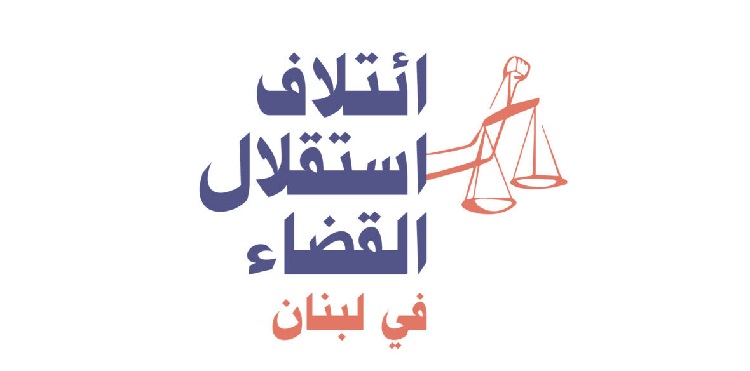Statement by the Independence of the Judiciary Coalition: Suing the Judge Who Dared Defy Banking Secrecy in the Salameh Case

On 9 November 2021, the media reported that Bankmed had filed a suit against the state for what it labeled grave errors by Judge Jean Tannous, the attorney-general handling the Riad and Raja Salameh case. According to the information leaked, the errors cited by Bankmed (one of five banks that Swiss federal prosecutor Joel Pahud mentioned in a request for judicial cooperation in a criminal probe) include seeking to lift banking secrecy from the Salameh brothers’ accounts. Immediately, several media outlets began circulating the news with two insinuations: that Tannous would be removed until the suit is adjudicated, and that the other banks under investigation were preparing to file similar suits against him. The case in question stems from a letter received from the Swiss Federal Public Prosecution in late 2020 about so-called “Swiss transfers” linked to the Salameh brothers. These transfers suggest that they illicitly benefited from the Banque Du Liban to the tune of hundreds of millions of dollars, creating suspicions of embezzlement and aggravated money laundering per the Swiss request and therefore of “illicit enrichment” by a Lebanese official.
Note that the Public Prosecution or any competent judicial authority has the right to disregard banking secrecy in illicit enrichment cases under Article 7 of the Banking Secrecy Law. Moreover, banking secrecy does not apply when there is suspicion that taxes were not paid on profits from financial transactions involving public money subject to prosecutions pursuant to Lebanese tax laws. In that case, the new procedures defined in Law no. 55 of 27 October 2016 for exchanging tax information to obtain sufficient information from abroad concerning taxpayers residing for tax purposes in Lebanon, as well as the procedures of Money Laundering Law no. 44 of 26 November 2015, are applied so that the Lebanese state can implement its tax laws effectively and hence lift banking secrecy.
In response to the above, the Independence of the Judiciary Coalition would like to deliver the following observations:
Firstly, despite the financial and banking disaster that the ruling political and financial system caused over the last three decades, which has robbed depositors of their savings and destroyed the national economy, Parliament has repeatedly refused to lift banking secrecy, particularly from public officials, or even authorize the judiciary to lift it in corruption cases (the legislative session on 28 May 2020). Parliament thereby preserved the exclusive power of the Special Investigating Commission in the Banque Du Liban (a commission headed by the bank’s governor, the suspect Riad Salameh himself) to lift it. Banking Secrecy Law of 3 September 1956 excepted illicit enrichment crimes, authorizing the competent judicial authorities to disregard it in this area, and the current suit reflects arbitrary noncompliance with this exception by the banks. Hence, rather than narrowing the scope of banking secrecy to allow judges to conduct the investigations necessary to recover whatever losses can be recovered, this suit seeks to remove the judge in the name of greater secrecy than the law requires.
Secondly, this action against the state is an attack on Judge Tannous’ work and an attempt to obstruct his investigation into the Salameh brothers’ case, all in the name of banking secrecy. In essence, this effort closely resembles the attempts to obstruct the port blast investigation, which target the work of Judicial Council Investigator Tarek Bitar in the name of various immunities. Hence, by any objective reading of these measures and circumstances, their common goal is to fortify the system of impunity against judges who dare or have dared to defy it.
Thirdly, obstructing Judge Tannous’ work in this case will put Lebanon in a difficult position vis-à-vis the European judicial authorities, particularly the Swiss ones, which have supplied it with rich information about Salameh’s violations. This would show flagrant indifference by Lebanon toward recovering its stolen wealth despite the disaster occurring in the country, in stark contrast with the enthusiasm of Switzerland and its practical measures, as well as France and the measures it is taking to enable Lebanon to achieve this.
Hence, facing these attempts to protect the system of impunity, the Independence of the Judiciary Coalition demands:
1 – That all judicial bodies, foremost among them the full bench of the Court of Cassation, exert the necessary efforts to curb the system of impunity and, in practice, narrow the scope of immunities, banking secrecy, any of its other cornerstones. Such efforts are intrinsic to the judicial function, which is based primarily on the principles of accountability and equality. We hereby declare that the yardstick by which we, as a coalition, will measure judicial decisions is their effect in expanding or constricting this system.
2 – That Parliament promptly adopt the law lifting banking secrecy from all public officials and politically exposed persons and authorizing the judiciary to lift it in all corruption cases, with an emphasis on excepting crimes of illicit enrichment from this secrecy.
3 – That the Lebanese government make the necessary decisions and initiate the measures available to protect and recover stolen public wealth or illicitly acquired wealth, hold the violators and people responsible accountable, and compensate the aggrieved. This the government should do as soon as possible, before the deadlines elapse and the money and assets are dissipated, in accordance with the scientific and practical study donated to it by one of the coalition’s members (the Lebanese Association for Taxpayers’ Rights).
4 – That the social forces mobilize and rally as broadly as possible around the judges striving to constrict the system of impunity, in the face of all the attacks and campaigns against them, particularly the concentrated media and political campaigns. We cannot demand that judges confront grave violations of society’s rights despite all the dangers they face without providing them as much solidarity and support as we can.
This article is an edited translation from Arabic.



